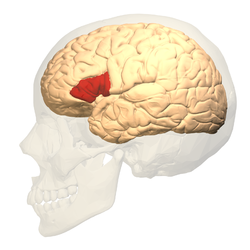Chapter 1 Behavioral Sciences MCAT
1/16
Earn XP
Description and Tags
information taken from Kaplan 2023-2024 book.
Name | Mastery | Learn | Test | Matching | Spaced |
|---|
No study sessions yet.
17 Terms
What is Franz Gall's major contribution to neuropsychology
Doctrine of Phrenology - brain development causes brain expansion (lumps and bumps), and it can be measured by feeling/measuring skull
What is Pierre Flourens’ contribution to neuropsychology?
study brain function by extirpation, which is removing parts of the brain of small animals. Results are brain function weakens
What is William James‘s major contribution to neuropsychology
Functionalism - how mental processes help individual adapt to environment
What is John Dewey‘s major contribution to neuropsychology
Functionalism - critique, study of organism needs to be viewed as a whole
What is Paul Broca’s contribution to neuropsychology
Brain lesions on specific parts impair specific functions. Someone cannot speak was found to have lesion on left side of brain. This is region named Broca’s area.

What is Hermann von Helmholtz’ contribution
Measured speed of nerve impulse (how it relate to reaction time). He provided link between psychology and physiology
What as Sir Charles Sherrington’s contribution
Inferred existence of Synapses. Proposed its electrical process when its acc chemical as we know it.
What are components of the CNS?
The central nervous system includes the brain and the spinal cord.
What are the components of the PNS?
nerve and tissue fiber outside of spinal cord. Includes 31 pairs of spinal nerves and 12 pairs of cranial nerves
what are afferent neurons and what do htey do?
sensory neurons, transmit sensory info from receptors to spinal cord and brain
What are efferent neurons and what do they do?
motor, transmit motor info from brain and spinal cord to muscle/glands
What are interneurons? where are they found?
found between neurons, located in brain/spinal cord. They are linked to reflex arcs.
What is reflex arc and describe the process (from receiving the signal)
fast reflexes. Afferent neuron send pain signal to spinal cord interneurons. Signal then is both relayed to the brain, and site of pain and make the muscles there retract.
What functions are accomplished by the 2 components of the somatic nervous system?
Voluntary skeletal muscle movements: Sensory neurons transmit info towards CNS along afferent fibers, motor impulses travel from CNS back to body along efferent fibers
What functions are accomplished by the autonomic nervous system?
Involuntary muscle control of internal organs and glands. (regulating heart beat, respiration, digestion, glandular secretions, body temp)
What are the role and effects of the sympathetic nervous system?
Activated by stress, for body to adapt to stressful situations. Effects include: increasing heart rate, relax bronchi, decrease digestion, release epinephrine to blood, dilate eyes to maximize light intake. Increase blood pressure (think of constricting vessel to do that)
What are the role and effects of the parasympathetic nervous system?
To conserve energy. Effects include: Reduce heart rate, constrict bronchi, increase digestion via increasing peristalsis and exocrine secretions. Ach responsible for para.